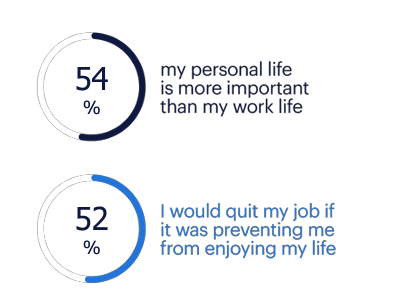Survey: 2 In 5 M'sians Would Quit Their Jobs If Required To Work In Office More Often
A significant portion of the Malaysian workforce now prioritise work flexibility.
According to talent agency, Randstad, two in five Malaysians are willing to resign if they're required to work in the office more often
The 2024 Randstad Malaysia Workmonitor Report details the results of a survey conducted online among 27,000 respondents between the ages of 18 and 67. It was carried out across various countries, including Malaysia, Singapore, China, Japan, and Hong Kong.
The survey found that a significant portion of the Malaysian workforce now prioritise work flexibility.
This trend is particularly strong among younger generations, with nearly half of Gen Zs (49%) and millennials (47%) being opposed to inflexible work arrangements.
Gen Zs and millennials are part of a demographic expressing that remote work is a non-negotiable for them
According to the report, younger generations entering the workforce often have a stronger preference for flexible work arrangements, possibly due to their digital fluency and shifting priorities.
Additionally, more than 50% of employees prioritise their personal lives over their jobs, and would contemplate resigning if their job interfered with them enjoying their life
The survey showed that the pandemic highlighted the effectiveness of remote work, reshaping attitudes toward traditional office setups.
Two in five Malaysians have made lifestyle changes, such as relocating or owning pets, to accommodate remote work after the pandemic.
Interestingly, 51% of Gen Zs and 47% of millennials have adjusted their lifestyle to remote and hybrid arrangements.
Although remote work opportunities have increased, 86% of employees still favour working in the office for at least three days a week if they were given the choice.
As a result of remote work brought on by the pandemic, job seekers have even turned down lucrative positions that require daily office presence.
The report emphasises that flexible work arrangements offer benefits not only to employees, such as improved work-life balance and autonomy, but also to employers
"By offering these options, organisations can expand their talent pool to include individuals like persons with disabilities and caregivers. This fosters equal opportunities, expands the workforce, elevates employee skills, and contributes to economic growth," the report said.



